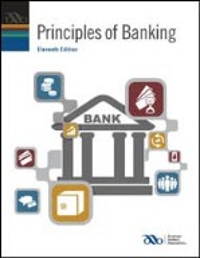Question
The Ewert Exploration Company is considering two mutually exclusive plans for extracting oil on property for which it has mineral rights. Both plans call for
The Ewert Exploration Company is considering two mutually exclusive plans for extracting oil on property for which it has mineral rights. Both plans call for the expenditure of $11 million to drill development wells. Under Plan A, all the oil will be extracted in 1 year, producing a cash flow at t = 1 of $11.5 million; under Plan B, cash flows will be $1.5 million per year for 20 years.
- What are the annual incremental cash flows that will be available to Ewert Exploration if it undertakes Plan B rather than Plan A? (Hint: Subtract Plan A's flows from B's.) Enter your answers in millions. For example, an answer of $1.23 million should be entered as 1.23, not 1,230,000. Round your answers to two decimal places. Use a minus sign to enter cash outflows, if any.
Year Incremental Cash Flow (B - A) 1 $ million 2-20 $ million - If the company accepts Plan A and then invests the extra cash generated at the end of Year 1, what rate of return (reinvestment rate) would cause the cash flows from reinvestment to equal the cash flows from Plan B? Round your answer to two decimal places.
Project B: _______%
-
Suppose a firms cost of capital is 10%. Is it logical to assume that the firm would take on all available independent projects (of average risk) with returns greater than 10%? Further, if all available projects with returns greater than 10% have been taken, would this mean that cash flows from past investments would have an opportunity cost of only 10%, because all the firm could do with these cash flows would be to replace money that has a cost of 10%? Finally, does this imply that the cost of capital is the correct rate to assume for the reinvestment of a projects cash flows?
I. No, the firm would not take on all available independent projects with greater than 10% returns. If taken, risk remains the same among projects and the cost of capital does not vary with the amount of capital raised. II. Yes, the firm would take on all available independent projects with greater than 10% returns. If taken, risk varies with projects and the cost of capital varies with the amount of capital raised. III. Yes, the firm would take on all available independent projects with greater than 10% returns. If taken, risk remains the same among projects and the cost of capital does not vary with the amount of capital raised. Which one is Correct?
-
Identify each project's IRR. Round your answers to two decimal places.
Project A: _________%
Project B: _________%
Indicate the crossover rate. Round your answer to two decimal places.
Project B: __________%
Step by Step Solution
There are 3 Steps involved in it
Step: 1

Get Instant Access to Expert-Tailored Solutions
See step-by-step solutions with expert insights and AI powered tools for academic success
Step: 2

Step: 3

Ace Your Homework with AI
Get the answers you need in no time with our AI-driven, step-by-step assistance
Get Started


